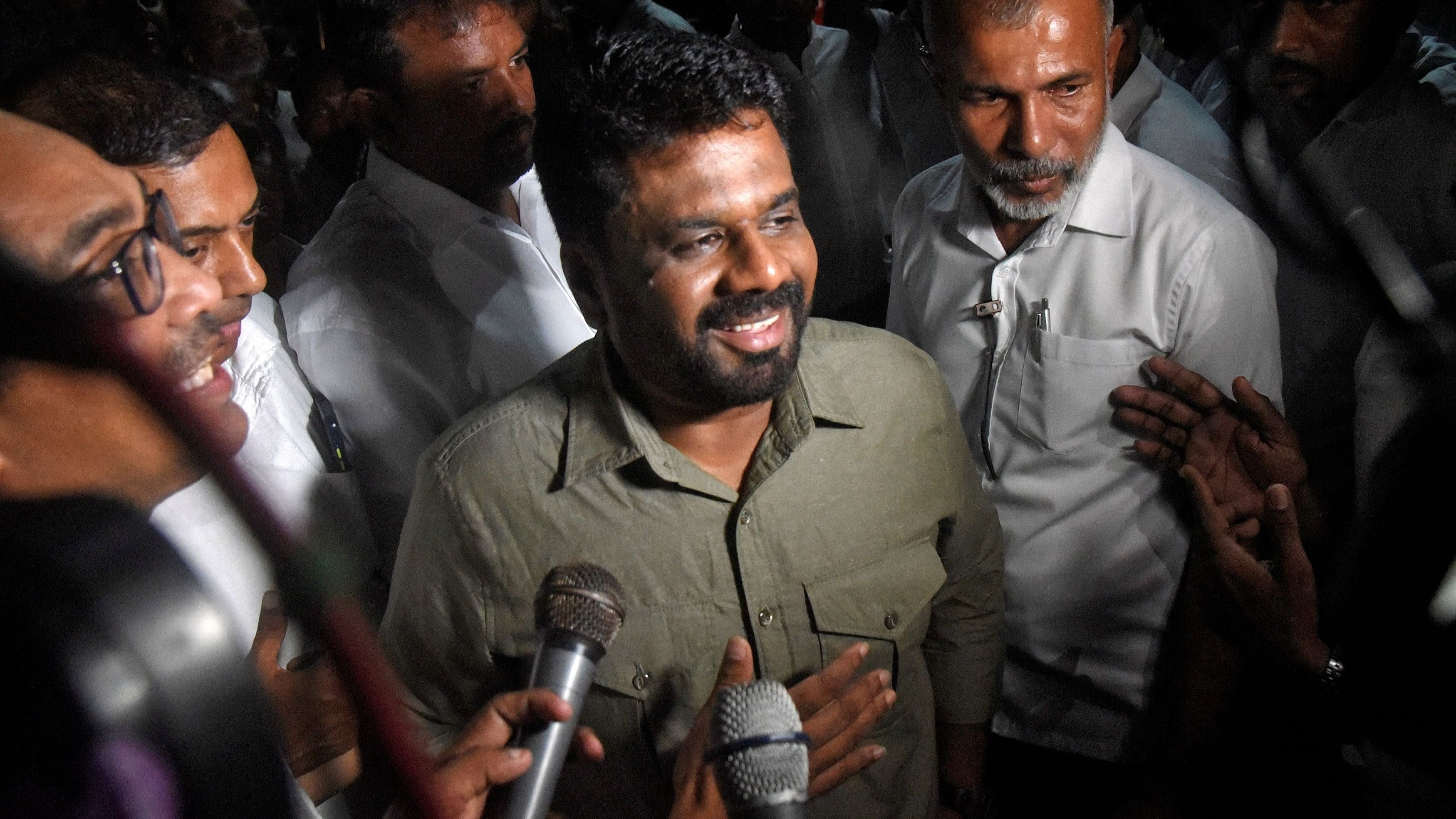
Anura Kumara Dissanayake
Credit: Reuters Photo
The election of Anura Kumara Dissanayake of the Janata Vimukthi Peramuna-led National People’s Power coalition as the President of Sri Lanka was not unexpected. Popularly known as AKD, the new President campaigned as the candidate of “system change”. This was the clarion call heard during the 2022 public uprising against the Rajapaksa brothers – then President Gotabaya and Prime Minister Mahinda -- for their mismanagement of the country's economy. After their ouster, the people expected a real change in leadership. Outgoing President Ranil Wickremesinghe did not represent that change. Dissanayake, who has promised to unburden the people of the conditions imposed by the IMF for bailing out Sri Lanka with a $2.9 billion loan, which has increased the economic miseries of the people, now has to fulfil his mandate. His next step will likely be the dissolution of parliament to hold fresh elections to the 225-member house, where the JVP has only three members. As a contestant, Dissanayake was unclear about his plan to fix the economy. But he appears to be a political pragmatic, playing down both the radical leftist roots of the JVP and the party's Sinhala chauvinism.
Apprehensions in Delhi about Dissanayake are based on the JVP's history of hostility towards India and its pro-China leanings, which it has not hidden. But Dissanayake, who was sworn-in on Monday, has also stated in several interviews his willingness to acknowledge India's importance to Sri Lanka, especially as the biggest economy in South Asia and as Colombo's nearest neighbour. He has also stated that Sri Lanka has no geopolitical rivalry with India. How he will balance this with the JVP's relations with the economically entrenched China will determine India's perceptions of the new President and its own security calculus. An early outreach by Delhi to Dissanayake, and a visit by him to India in March this year, have ensured that the two sides are not strangers.
Although the Tamil question is no longer a priority in Delhi, long having been overtaken by concerns about China's influence in its southern neighbour, Dissanayake's stated intention to bring in a new constitution could create another point of concern for India. Any rewriting of the Sri Lankan Constitution would potentially open a can of worms as there has been a clamour from several quarters, including the JVP, for dropping the 13th Amendment, made at the behest of India in 1987. It is the only measure for power-sharing with Tamil areas that has been constitutionally enshrined. Even this provision has not been fully accepted or implemented. Any attempt to tinker with this will bring the Tamil question front and centre in relations with India. President Dissanayake has been chosen by a majority of Sri Lanka's voters. India respects their choice and the peaceful manner in which this historic transition has been achieved. While the difficulties in the relationship may continue, diplomacy should ensure that they do not worsen.